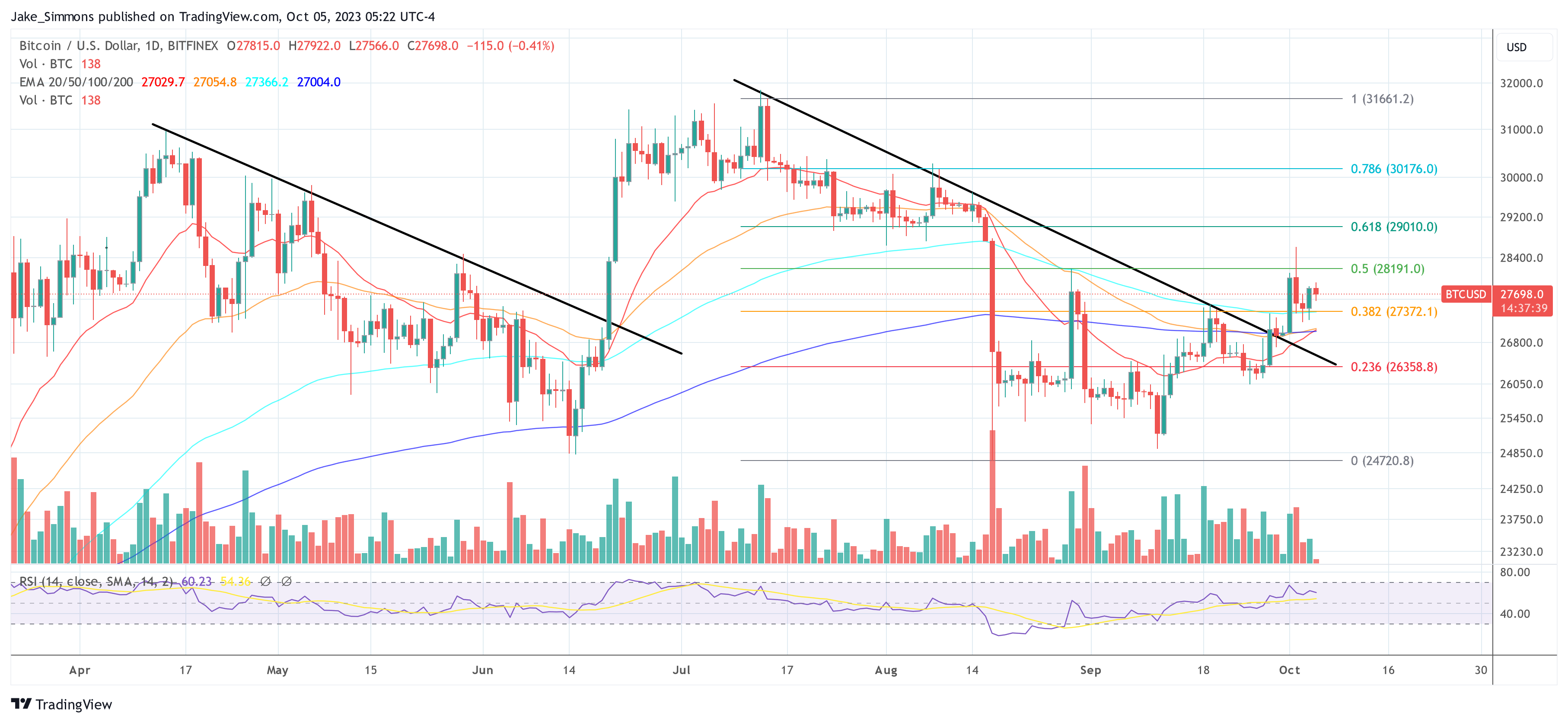The Bitcoin peer-to-peer (p2p) network is poised for a significant security upgrade with the upcoming integration of Bitcoin Improvement Proposal (BIP) 324, a proposal that has gained traction within the community for its potential to thwart certain types of cyber attacks.
BIP324 has been merged and will be integrated into the upcoming release of Bitcoin Core, the most popular software used to connect to the BTC network and run a node. The new protocol has been endorsed and discussed by prominent figures in the BTC realm, signaling a shift towards enhanced encryption and privacy.
Bitcoin Network Becomes More Secure And Private
Jameson Lopp, co-founder of Casa and a staunch Bitcoin advocate, highlighted the core benefit of BIP324 via a tweet: “Bitcoin’s p2p network is about to become more secure against man-in-the-middle attacks. BIP324 enables nodes to opportunistically encrypt their communications with peers on the network.” Lopp’s statement was in reference to a tweet from the Bitcoin Merges’ X account, which announced the merger of a pull request related to BIP324 from developer Pieter Wuille.
Reacting to Lopp, Wuille emphasized the broader potential of BIP324, stating, “Indeed. While BIP324 does provide a foundation for later improvements, what it accomplishes on its own (when deployed at scale), is increasing the costs for wide-scale monitoring.” This indicates that while BIP324 is a foundational step, there is room for further advancements.
River, a platform catering to BTC services, further shed light on the implications of the BIP324 integration, tweeting: “Bitcoin’s censorship resistance is about to get better, as BIP324 just got merged into the next version of Bitcoin Core!” They highlighted how the current unencrypted nature of Bitcoin’s p2p communications leaves it vulnerable to eavesdropping.
“One of the main attributes of Bitcoin is its censorship resistance, allowing users to transact peer-to-peer, pseudonymously, without the fear of being tracked. However, the current system falls short in practice,” Rivers notes.
A consistent string of “magic bytes” initiates every BTC-related communication between nodes, notably recognized as ‘f9beb4d9’. This uniformity not only makes peer-to-peer node traffic easily distinguishable but also puts the metadata of nodes at risk. Such a pattern could pave the way for Internet Service Providers to impose censorship or for ill-intentioned actors to launch affordable attacks on nodes.
However, BIP324 changes this. It proposes the addition of opportunistic transport encryption, introducing a byte string that is pseudorandom, making it nearly impossible to distinguish from genuine randomness. What’s equally remarkable is its commitment to maintaining the affordability of node operations, ensuring the decentralized spirit of Bitcoin remains intact.
Of note, the new upgrade will not necessitate any forks, thereby ensuring a smoother transition.
More Improvements
Going deeper into the details of BIP324, available on GitHub, the proposal highlights several other advancements beyond opportunistic encryption. One such feature is the introduction of a new handshake, which would facilitate the process by which nodes initially connect and communicate. This revised handshake will bolster initial connection security and streamline the authentication process.
Furthermore, BIP324 is also set to address potential denial-of-service attacks on the network. By implementing certain safeguards against these types of attacks, the network will be better equipped to maintain its uptime and fend off malicious actors trying to disrupt its operations.
Another valuable aspect of BIP324 is its forward-secrecy feature. This ensures that if an attacker manages to compromise a session key, they cannot decrypt past traffic. This means that even if a malicious actor were successful in their initial breach, their access to valuable information would be severely limited, providing an added layer of protection for Bitcoin users.
At press time, BTC traded at $27,698.
Featured image from Shutterstock, chart from TradingView.com
Credit: Source link


























